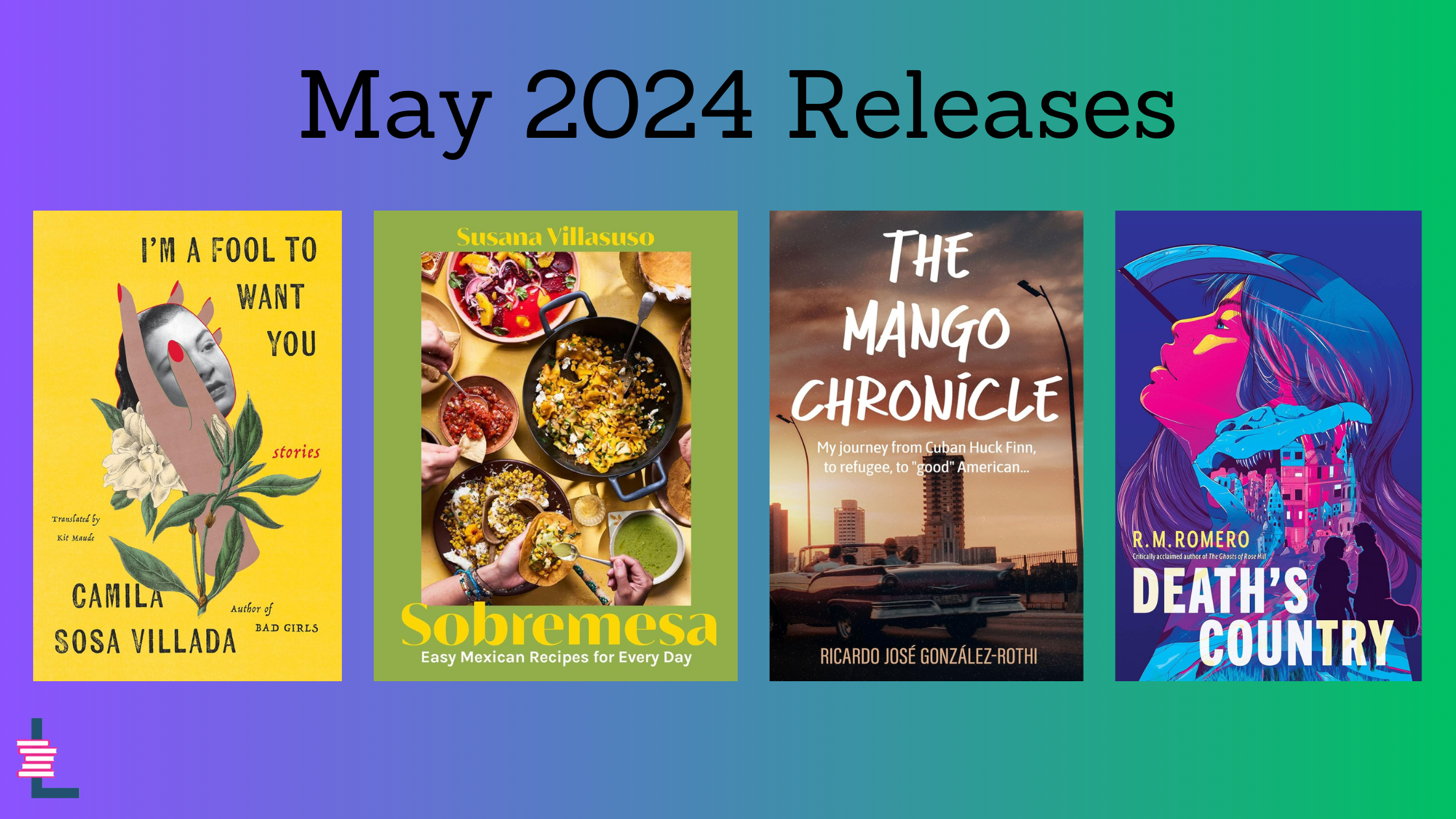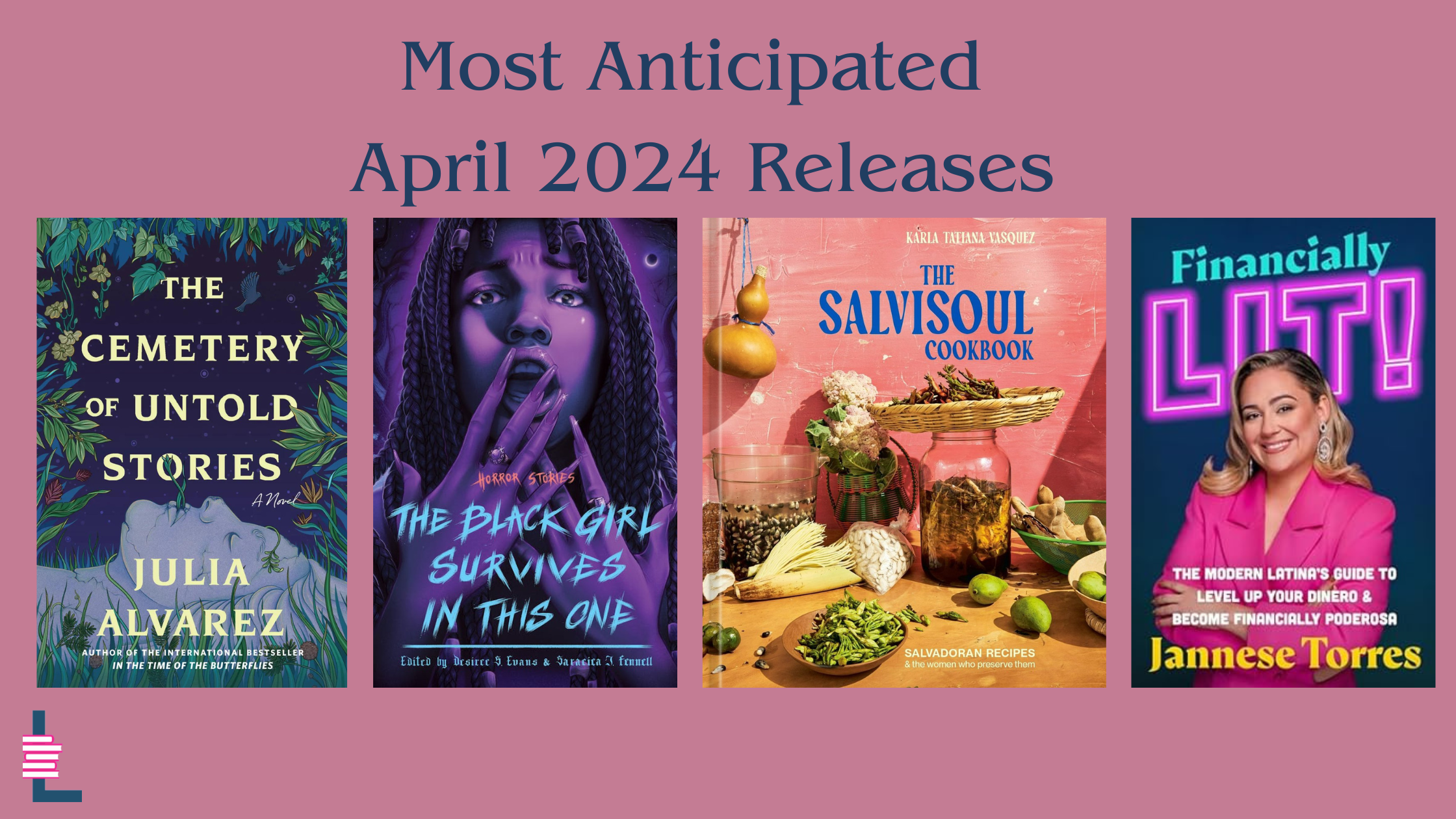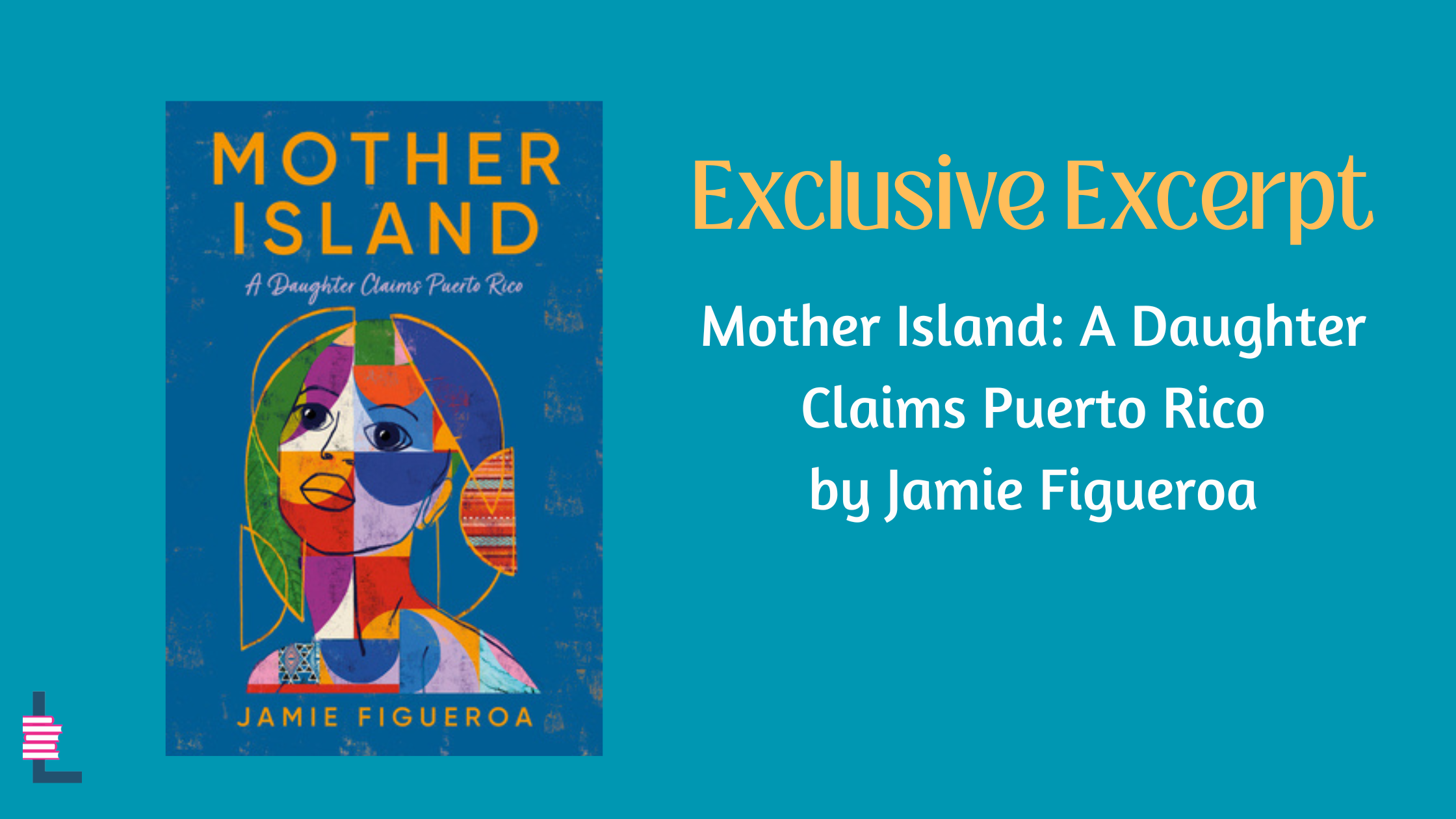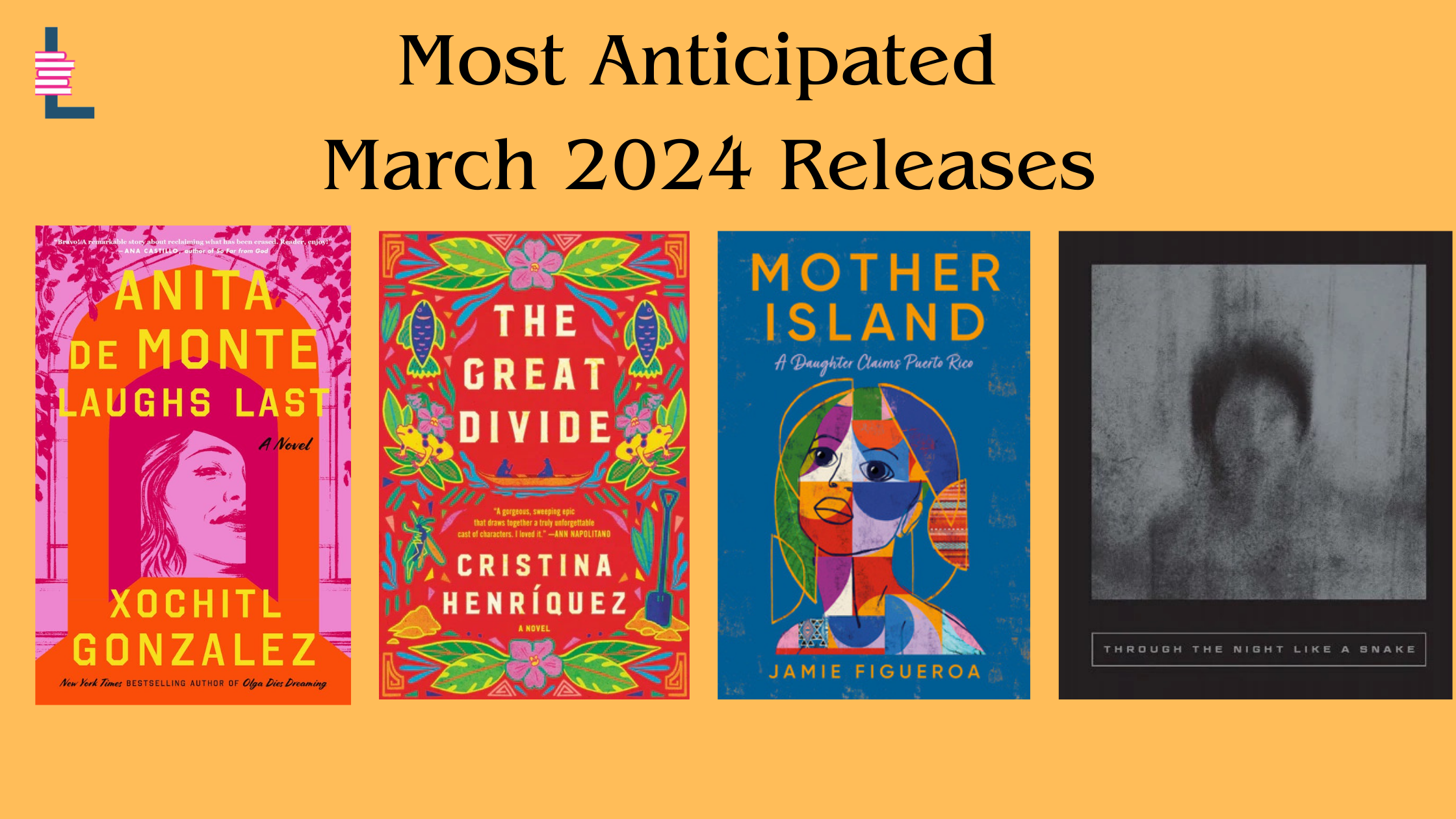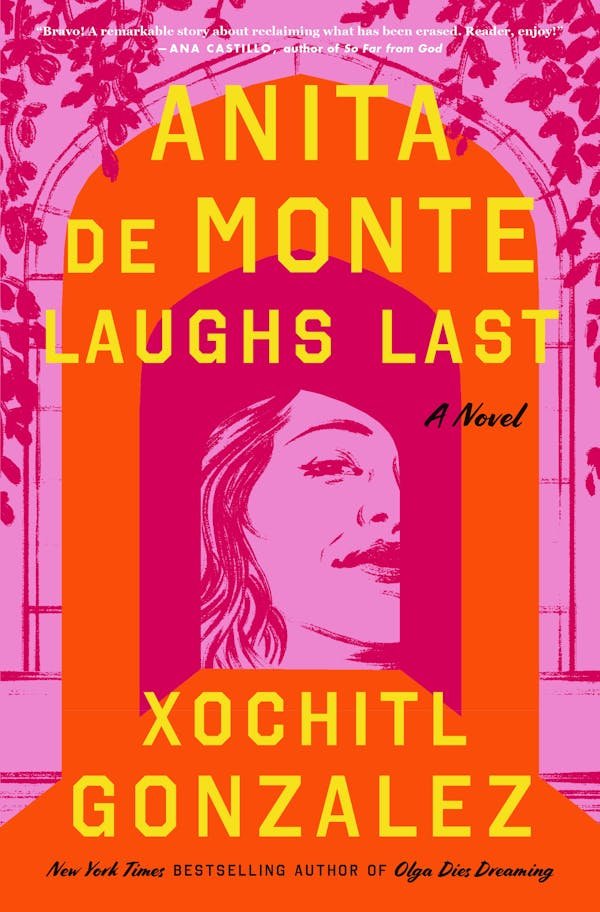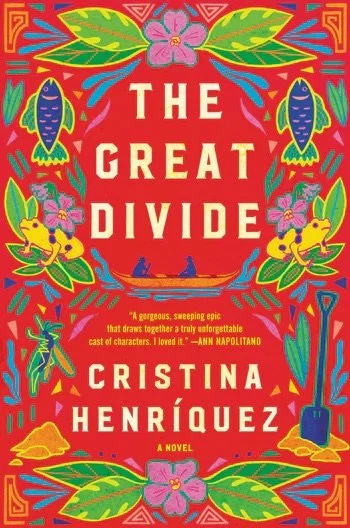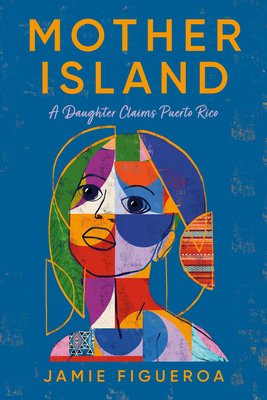On Sale May 6
The Harvest by Diego Rauda | ADULT FICTION
After a nightmare about a disembodied, skinless head calling him from under the bed, Daniel woke with a jolt, but managed to fall asleep again with little effort. He was used to these hellish visions-- while asleep. Now the visions have started to cross over to his waking life, and it's game over. As he tries to bury the feeling that he's being stalked by an unseen force, one of his closest friends takes their own life in front of Daniel, but only after blaming him and " the dragon he carries." While he races to elucidate a mystery that recedes before him, the people closest to Daniel continue to die in perverse circumstances. Against his better judgment, Daniel follows the thread which connects these deaths in order to discover the truth.
Bad Seed: Stories by Gabriel Carle | SHORT STORIES
The visceral, wildly imaginative stories in Bad Seed flick through working-class scenes of contemporary Puerto Rico, where friends and lovers melt into and defy their surroundings--night clubs, ruined streets, cramped rooms with cockroaches moving in the walls. A horny high schooler spends his summer break in front of the TV; a queer love triangle unravels on the emblematic theater steps of the University of Puerto Rico; a group of friends get high and watch San Juan burn from atop a clocktower; an HIV positive college student works the night shift at a local bathhouse. At turns playful and heartbreaking, Bad Seed is the long overdue English-language debut of one of Puerto Rico's most exciting up-and-coming writers.
American Abductions by Mauro Javier Cardenas | ADULT FICTION
American Abductions opens in a near-future United States whose omnipresence of data-harvesting and algorithms has enabled the mass incarceration and deportation of Latin Americans--regardless of citizenship. After their father is abducted by immigration officials before their eyes and deported to Colombia, Ada and her sister Eva are left to contend with a United States as all-seeing as it is hostile. Now adults, Ada remains in San Francisco while Eva has joined their father in Colombia, tending him in his ailing health. When his condition worsens, Eva asks Ada to come see them: a nearly impossible feat, given the United States' restrictions on Latin Americans' movements. Ada, terribly alone, must come to terms with the violence of American society and the grief of lost community. Exploring the role of technology, mass society, and American expectations on how Latin American deportees should tell their stories, the novel delves into the ties, memories, and lines of code binding communities together.
The Mango Chronicle by Ricardo José González-Rothi | MEMOIR
He leaves his birthplace during a nuclear missile crisis. As a refugee in a foreign land he struggles to adjust to a new set of life circumstances. The author recollects his childhood in his Cuban barrio from the eyes of a child, and then decades later, from the vantage of a grown adult. From stealing a rowboat and being nearly capsized by a Russian tanker, to befriending an old fisherman who tells him a haunting tale, to being bullied by a neighborhood thug, to cockfights gone wrong, to witnessing the plight of political prisoners during an invasion, to dealing with the injustices of growing up in a machismo and homophobic culture, he had led a Cuban Huck Finn childhood. Arriving in an at-times unwelcoming culture, he struggles to assimilate while preserving his native soul. Eventually he finds redemption upon circling back to his roots when he returns to the island.
The Perfect Place by Matt de la Peña | Illustrated by Paola Escobar | PICTURE BOOK
Lucas goes to the perfect school in the perfect neighborhood. But life at home is not so perfect. His dad's old work truck stalls in front of the school. The electricity is out when he gets home, and he doesn't even have time to show his mom his report (on which he received a perfect score) before she rushes off to her night job.
That night, Lucas dreams of a strange light, which he follows down the fire escape, into the alleyway, clear out of his neighborhood, all the way to the place where the perfect people live. Everything there is more beautiful than he could have imagined. But is it possible things aren't as perfect as they seem?
This lyrical, richly illustrated picture book highlights the beauty to be found in even the humblest of homes and in a family that may not be materially rich but is rich in love.
La Guitarrista by Lucky Diaz | Illustrated by Micah Player | Translated by Carmen Tafolla |PICTURE BOOK
Strum! Strum! Strum! Get ready to rock with la guitarrista!
When Canta finds a guitar in the trash, she is one step closer to becoming a rock star. Even though the guitar is broken and she doesn't know how to play, nothing can stop Canta from going after her dreams!
Perfect for fans of Because and We Will Rock Our Classmates, La Guitarrista, The Rock Star will have readers rocking out to this empowering tale of resilience, community, the power of music--and never giving up on your dreams.
Includes an author's note from Lucky Diaz and a link to the Lucky Band's song inspired by the book. Also available in Spanish.
Los Monstruos: Rooster and the Dancing Diablo by Diana López | MIDDLE GRADE
The magical town of Tres Leches, home to the figures of Texas-Mexico border lore, has been through a lot. Most recently, the town was released from a curse that kept La Llorona, the wailing woman, haunting the shores of their river. But just when the townsfolk were preparing to return to sunny riverside picnics and barbecues, the children of Tres Leches mysteriously began to go missing. The town suspects another monstruo, the Dancing Devil, is luring kids to El Camarón Dance Hall & Arcade. The Dancing Devil's son, Rooster, who has a foot in both the human and monster worlds, feels compelled to lead the search for the missing children with the help of his friends, Ava (the daughter of La Lechuza) and Felice (the daughter of La Llorona). Their journey takes them to an old gothic mansion with a twisted family history and a pull so powerful that it's nearly impossible to resist.
Picking up where Felice and the Wailing Woman left off, Rooster and the Dancing Diablo brims with magic, adventure, and Mexican folklore, and is perfect for fans of fantasy adventure series like Paola Santiago by Tehlor Kay Mejia and the Jumbies by Tracey Baptiste.
América del Norte by Nicolás Medina Mora | ADULT FICTION
Sebastián lived a childhood of privilege in Mexico City. Now in his twenties, he has a degree from Yale, an American girlfriend, and a slot in the University of Iowa's MFA program.
But Sebastián's life is shaken by the Trump administration's restrictions on immigrants, his mother's terminal cancer, the cracks in his relationship, and his father's forced resignation at the hands of Mexico's new president. As he struggles through the Trump and López Obrador years, Sebastián must confront his father's role in the Mexican drug war and navigate his whiteness in Mexican contexts even as he is often perceived as a person of color in the US. As he does so, the novel moves through centuries of Mexican literary history, from the 17th century letters of a peevishly polymathic Spanish colonizer to the contemporary packaging of Mexican writers for a US audience.
Split between the US and Mexico, this stunning debut explores whiteness, power, immigration, and the history of Mexican literature, to wrestle with the contradictory relationship between two countries bound by geography and torn apart by politics.
Queerceañera by Alex Crespo | YOUNG ADULT
oaquin Zoido is out and proud of it. And while he knew his dad and sister, Carmen, would be super supportive, he wasn't quite ready for them to surprise him with a queerceañera, a coming out party to celebrate him. Between all the talks of tastings and venues, and the chirping of his family's RSVP texts, the question of who will be his chambelán is on everyone's minds.
What Joaquin is decidedly trying to not think about is whether his mom is going attend or if she's finally replaced him with her favorite godson, Felix--the boy who made Joaquin realize he was gay and who was his first kiss. But when an impromptu lie snowballs into a full-fledged family-group-chat rumor, every Zoido from Texas to Mexico starts believing that Felix is not only Joaquin's chambelán but also his brand-new boyfriend.
To avoid the pity and sympathies of an ill-timed breakup, Joaquin and Felix strike a deal--they'll stay fake boyfriends until the party. Yet, as the day draws nearer and old feelings spark anew, Joaquin will have to decide whether a picture-perfect queerceañera with a fake boyfriend is worth giving up the chance of something real.
Death's Country by R.M. Romero | YOUNG ADULT
Andres Santos of São Paulo was all swinging fists and firecracker fury, a foot soldier in the war between his parents, until he drowned in the Tietê River... and made a bargain with Death for a new life. A year later, his parents have relocated the family to Miami, but their promises of a fresh start quickly dissolve in the summer heat.
Instead of fists, Andres now uses music to escape his parents' battles. While wandering Miami Beach, he meets two girls: photographer Renee, a blaze of fire, and dancer Liora, a ray of sunshine. The three become a polyamorous triad, happy, despite how no one understands their relationship. But when a car accident leaves Liora in a coma, Andres and Renee are shattered.
Then Renee proposes a radical solution: She and Andres must go into the underworld to retrieve their girlfriend's spirit and reunite it with her body--before it's too late. Their search takes them to the City of the dead, where painters bleed color, songs grow flowers, and regretful souls will do anything to forget their lives on earth. But finding Liora's spirit is only the first step in returning to the living world. Because when Andres drowned, he left a part of himself in the underworld--a part he's in no hurry to meet again. But it is eager to be reunited with him...
Relentless: My Story of the Latino Spirit That Is Transforming America by Luis A. Miranda with Richard Wolffe | ADULT NONFICTION
A veteran of New York and national politics, Luis Miranda embodies the relentless spirit of progress of American immigrants.
There is no one on the Latino, New York, and national political scene with the breadth of experience, passion, and storytelling charm of Luis Miranda. In Relentless, he shares a fascinating narrative of his life and career--from his early days as a radically minded Puerto Rican activist to his decades of political advice and problem-solving.
Miranda recounts the thrill of the ascendency of Hamilton, created by his son Lin-Manuel, and he details the suffering after the devastation of Puerto Rico by Hurricane Maria. Amid the triumphs and challenges, Miranda examines what his experience reveals about our ever-changing politics, demographics, and society.
One Year in Uvalde: A Story of Hope and Resilience by John Quiñones and María Elena Salinas | ADULT NONFICTION
Uvalde: 365 was a continuing ABC News series led by the network's Investigative Unit. As part of the initiative, ABC News opened a local satellite news bureau in Uvalde, Texas, in the aftermath of the tragic mass shooting at Robb Elementary School, that hosted a rotating crew of correspondents, producers, writers, and technical staff. Their gripping, vital reporting has been featured across all programs and platforms, from Good Morning America to World News Tonight with David Muir.
Award-winning journalists John Quiñones and María Elena Salinas became immersed in the Uvalde community, as their field reporting brought them ever closer to the people of this Texas city. Quiñones, Salinas, and other ABC reporters and producers on the ground documented the lives of victims' families; covered local community events; followed city council, school board, and Texas Legislature meetings; and attended congressional hearings in Washington, D.C., where victims' families have been advocating for gun reform.
One Year in Uvalde synthesizes this year-long story into a timely, humane, and important look at a community's activism and resiliency, as it follows several families and residents while events continue to unfold in the community. The intimate, sensitive reporting of Quiñones, Salinas, and the ABC News team examines a specific time and place in American life, thereby highlighting challenges that we face as a nation.
Hot Boy Summer by Joe Jiménez | YOUNG ADULT
Mac has never really felt like he belonged. Definitely not at home--his dad's politics and toxic masculinity make a real connection impossible. He thought he fit in on the baseball team, but that's only because he was pretending to be someone he wasn't. Finding his first gay friend, Cammy, was momentous; finally, he could be his authentic self around someone else. But as it turned out, not really. Cammy could be cruel, and his "advice" often came off way harsh.
And then, Mac meets Flor, who shows him that you can be both fierce and kind, and Mikey, who is superhot and might maybe think the same about him. Over the course of one hot, life-changing summer, Mac will stand face-to-face with desire, betrayal, and letting go of shame, which will lead to some huge discoveries about the realness of truly belonging.
Told in Mac's infectious, joyful, gay AF voice, Hot Boy Summer serves a tale as important as hope itself: four gay teens doing what they can to connect and have the fiercest summer of their lives. New friendships will be forged, hot boys will be kissed...and girl, the toxic will be detoxed.
The Dead Don't Need Reminding: In Search of Fugitives, Mississippi, and Black TV Nerd Shit by Julian Randall | MEMOIR
The Dead Don't Need Reminding is a braided story of Julian Randall's return from the cliff edge of a harrowing depression and his determination to retrace the hustle of a white-passing grandfather to the Mississippi town from which he was driven amid threats of tar and feather.
Alternatively wry, lyrical, and heartfelt, Randall transforms pop culture moments into deeply personal explorations of grief, family, and the American way. He envisions his fight to stay alive through a striking medley of media ranging from Into the Spiderverse and Jordan Peele movies to BoJack Horseman and the music of Odd Future. Pulsing with life, sharp, and wickedly funny, The Dead Don't Need Reminding is Randall's journey to get his ghost story back.
Trippy: The Peril and Promise of Medicinal Psychedelics by Ernesto Londoño | ADULT NONFICTION
When he signed up for a psychedelic retreat run by a mysterious Argentine woman deep in Brazil's rainforest in early 2018, Ernesto Londoño, a veteran New York Times journalist, was so depressed he had come close to jumping off his terrace weeks earlier. His nine-day visit to Spirit Vine Ayahuasca Retreat Center included four nighttime ceremonies during which participants imbibed a vomit-inducing plant-based brew that contained DMT, a powerful mind-altering compound.
The ayahuasca trips provided Londoño an instant reprieve from his depression and became the genesis of a personal transformation that anchors this sweeping journalistic exploration of the booming field of medicinal psychedelics. Londoño introduces readers to a dazzling array of psychedelic enthusiasts who are upending our understanding of trauma and healing. They include Indigenous elders who regard psychedelics as portals to the spirit world; religious leaders who use mind-bending substances as sacraments; war veterans suffering from PTSD who credit psychedelics with changing their lives; and clinicians trying to resurrect a promising field of medicine hastily abandoned in the 1970s as the United States declared a War on Drugs.
Julián Es Una Sirena by Jessica Love |Translated by Georgina Lázaro | PICTURE BOOK
Traducido por la poeta puertorriqueña, Georgina Lázaro. Un día, tras salir de la piscina, mientras regresa a casa en tren con su abuela, Julián ve a tres mujeres vestidas con unos trajes espectaculares. Sus cabelleras flotan en el aire con brillantes colores, sus vestidos tienen colas de pescado y su regocijo inunda el vagón del tren. Cuando Julián llega a casa, hechizado por la magia que acaba de ver, solo piensa en vestirse como ellas con su propio fabuloso disfraz de sirena: se pone una cortina amarilla color mantequilla como cola y las frondas de una planta de helecho como tocado de la cabeza. ¿Pero qué pensará su abuela del desorden que ha hecho--y más importante aún--qué pensará de la imagen que tiene Julián de sí mismo? Cautivante y genuino, el libro de Jessica Love, galardonado con el premio Stonewall, es una jubilosa y radiante celebración del amor por uno mismo y de la individualidad.
On Sale May 14
Cast Away by Kate Johnstun | ADULT FICTION
What would you do for your shot at the American Dream? Veronica Chavez and her great nephew Chuy immigrate from Mexico to the US, their journeys seventy years apart, each willing to do whatever it takes to build the life of their dreams. In 1922, Veronica's romantic expectations are crushed by the dangers of living alone in a foreign country. Young and determined, she finds community in Utah's desert railroad towns. Decades later, Chuy comes with his family to Salt Lake City, but his parents are soon sent back to Mexico. Out of place but together, Chuy and Veronica manage to connect across generations--hatching a plan to finally win it big on reality TV.
The Dream Catcher by Marcelo Verdad | PICTURE BOOK
Some people dream of perfect waves, fancy castles, or piloting a plane. Others dream of someone to laugh and play with all day long. Some just dream of having a meal for the next day.
And little Miguel? As he and Abuelito work in the hot Oaxacan sun, selling cold coconuts and macrame dream catchers to earn a few coins, Miguel has only one simple wish--to have his parents by his side. But how can he keep the faith when the truth is that dreams don't always come to pass?
Marcelo Verdad's poignant tale of hope and resilience shows how living in the here and now can be a journey every bit as beautiful as a dream. Also available in Spanish.
Oye by Melissa Mogollon | FICTION
Structured as a series of one-sided phone calls from our spunky, sarcastic narrator, Luciana, to her older sister, Mari, this wildly inventive debut "jump-starts your heart in the same way it piques your ear" (Xochitl Gonzalez). As the baby of her large Colombian American family, Luciana is usually relegated to the sidelines. But now she finds herself as the only voice of reason in the face of an unexpected crisis: A hurricane is heading straight for Miami, and her eccentric grandmother, Abue, is refusing to evacuate. Abue is so one-of-a-kind she's basically in her own universe, and while she often drives Luciana nuts, they're the only ones who truly understand each other. So when Abue, normally glamorous and full of life, receives a shocking medical diagnosis during the storm, Luciana's world is upended.
When Abue moves into Luciana's bedroom, their complicated bond intensifies. Luciana would rather be skating or sneaking out to meet girls, but Abue's wild demands and unpredictable antics are a welcome distraction for Luciana from her misguided mother, absent sister, and uncertain future. Forced to step into the role of caretaker, translator, and keeper of the devastating family secrets that Abue begins to share, Luciana suddenly finds herself center stage, facing down adulthood--and rising to the occasion.
As Luciana chronicles the events of her disrupted senior year of high school over the phone to Mari, Oye unfolds like the most fascinating and entertaining conversation you've ever eavesdropped on: a rollicking, heartfelt, and utterly unique novel that celebrates the beauty revealed and resilience required when rewriting your own story. Also available in Spanish.
Magical/Realism: Essays on Music, Memory, Fantasy, and Borders by Vanessa Angélica Villarreal | NONFICTION
Upon becoming a new mother, Vanessa Angélica Villarreal was called to Mexico to reconnect with her ancestors and recover her grandmother's story, only to return to the sudden loss of her marriage, home, and reality.
In Magical/Realism, Villarreal crosses into the erasure of memory and self, fragmented by migration, borders, and colonial and intimate violence, reconstructing her story with pieces of American pop culture, and the music, video games, and fantasy that have helped her make sense of it all.
The border between the real and imagined is a speculative space where we can remember, or re-world, what has been lost--and each chapter engages in this essential project of world-building. In one essay, Villarreal examines her own gender performativity through Nirvana and Selena; in another, she offers a radical but crucial racial reading of Jon Snow in Game of Thrones; and throughout the collection, she explores how fantasy can help us interpret and heal when grief feels insurmountable. She reflects on the moments of her life that are too painful to remember--her difficult adolescence, her role as the eldest daughter of Mexican immigrants, her divorce--and finds a way to archive her history and map her future(s) with the hope and joy of fantasy and magical thinking.
Magical/Realism is a wise, tender, and essential collection that carves a path toward a new way of remembering and telling our stories--broadening our understanding of what memoir and cultural criticism can be.
10 Things I Hate about Prom by Elle Gonzalez Rose | YOUNG ADULT
Ivelisse Santos has had Joaquin Romero's back since their first playdate. Not just next-door neighbors, they're platonic soulmates.
At least, that's what Ive thinks, until Joaquin decides to ask Tessa Hernandez, the same girl who stole Ive's boyfriend, to prom. Sure, the head cheerleader and the star baseball player going to prom together makes more sense than Joaquin and Ivelisse--leader of tech crew--would. But that doesn't mean it should actually happen.
What's worse, Joaquin wants Ivelisse's help planning an elaborate promposal. As much as she wants to say no, she'll take all the quality time with Joaquin she can get before graduation. Even if it means watching her best friend fall for somebody else. Somebody who isn't her.
Nothing's Ever the Same by Cyn Vargas | MIDDLE GRADE
Itzel's 13th birthday party starts in just about the unluckiest way possible-with her dad having a heart attack. In those frantic moments, the piñata and the frosted sheetcake and the Styrofoam cups of orange soda are forgotten; the day's highlights end up being CPR, an ambulance ride, and angioplasty. But when her father gets home from the hospital, his problems are far from over--and Itzel's are just getting started.
Nothing's Ever the Same chronicles a young girl's coming of age in Chicago--growing up as her family grows apart. In masterful fashion, Cyn Vargas gives us a touching and memorable and universal story about a marriage on the brink and a teenager looking for love. It's a short book that packs a wallop; it's also a beautiful meditation on dysfunction and forgiveness, and all the times in life to which we can never return.
En Estas Tierras Mágicas by Yamile Saied Méndez | MIDDLE GRADE
Ya a los doce años, Minerva Soledad Miranda está decidida a alcanzar sus metas, a pesar de asumir más responsibilidades que los demás niños de las escuela--como cuidar a sus dos hermanas mientras su mamá maneja dos trabajos. Pero una noche, la mamá de Minerva no regresa a casa y Minerva tiene que decider qué hacer. Fue Mama secuestrada por ICE? Serán las niñas enviadas a hogares de acogida o centros de detención para niños inmigrantes?
Minerva y su hermanas no pueden dejar que nadie sepa que mamá ha desparecido. Simplemente fingirán que todo sigue normal hasta que ella regrese. El plan de Minerva se desmorona la primera tarde, cuando su hermanita hace un berrinche durante la audición de Minerva para la obra de Peter Pan.
Pero a medida que pasan los días y Minerva se preocupa cada vez más por su madre, algo mágico parece estar cuidándolos: dejándoles pastelitos, ayudándolos a encontrar dinero, e incluso dirigiéndolos a amigos y familiares lejanos que pueden ayudarlos. Eventualmente, Minerva debe tomar la decision más dificil de su vida. Y cuando lo haga, estará preparada para enfrentar los desafíos de la vida, con amistad, esparanza y un poco de magia de hadas.
Good Monster by Diannely Antigua | POETRY
Diannely Antigua's Good Monster grapples with the body as a site of chronic pain and trauma. Poignant and guttural, the collection "voyage[s] the land between crisis and hope," chronicling Antigua's reckoning with shame and her fallout with faith. As poems cage and cradle devastating truths--a stepfather's abusive touch, a mother's "soft harm"--the speaker's anxiety, depression, and boundless need become monstrous shadows. Here, poems dance on bars, speak in tongues, and cry in psych wards. When "God [becomes] a house [she] can't leave," language becomes the only currency left. We see the messiness of survival unfold through sestinas, a series of Sad Girl sonnets, and diary entries--an invented collage form using Antigua's personal journals. At the crux of despair, Antigua locates a resilient desire to find a love that will remain, to feel pleasure in an inhospitable body and, above all, to keep on living.
Future by María José Ferrada Ferrada | Illustrated by Mariana Alcántara | Translated by Kit Maude | PICTURE BOOK
Future takes young readers on a fun and clever journey of wonderment, exploring the uncertain yet exciting possibilities of tomorrow. Through whimsical prose and charming illustrations, this silvery book introduces children to enchanting, otherworldly ideas by incorporating a touch of science fiction with robots, rocket ships, and other fantastical concepts that may await them. Highlighting the limitless power of imagination, the authors foster a bright outlook on the future and world we live in. Future captivates as it celebrates creativity, instills hope, and underscores the boundless potential each child possesses as they carve their unique path in this world.
Future marks one more thrilling venture with the award-winning Chilean author, Maria José Ferrada, and the brilliant Mexican illustrator, Mariana Alcántara. Their first collaboration was the compelling book Swimmer, and with Future, they gift us another stunning tale. Maria José's poetic narrative and Mariana's magical illustrations create an extraordinary atmospheric journey brimming with imagination.
Body Autonomy: Decolonizing Sex Work and Drug Use Edited by Justice Rivera | ADULT NONFICTION
Body Autonomy: Decolonizing Sex Work and Drug Use is a bold and timely collection that confronts these charged issues at the intersection of social justice and public health. It reveals the histories behind the United State's ideological wars and illustrates their costs to all of us. It is a primer on healing-centered harm reduction, which presents a visionary framework and set of practical strategies to advance unity and care while working to transform conditions for communities that bear the brunt of interpersonal and systemic violence, overdose deaths, and health inequities. In the words of leading advocates, service providers, and the scholars whose lives and communities have been harmed by American neo-colonial policies, Body Autonomy offers promising, healing-centered interventions that represent a critical culture shift.
This collection features trusted voices on health and social policy reform, including Kate D'Adamo, Justice Rivera, Ismail Ali, Paula Kahn, and Sasanka Jinadasa, as well as respected healers like Richael Faithful, Amira Barakat Al-Baladi, and Mona Knotte. The articles, interviews, worksheets, and poems within are an offering to expand our collective understanding of survival, healing, and embodied freedom. Body Autonomy is a must read for anyone with a compassionate worldview, people seeking to know more about underground economies, and those who know that punishment doesn't lead to security. It is a liberatory design and a prayer for what's possible.
On Sale May 21
The Plant Rescuer by Matthew Rivera | PICTURE BOOK
Manny comes from a long line of gardeners, and to him, the greatest gardener of all is his dad. Dad always knows what plants need. Even with no yard to garden in, he tends their small apartment into a lush jungle.
One day, the time comes for Manny to get his very own first plant! Dad trusts Manny to care for his new amigo, and Manny is determined to rise to the challenge. But watching Dad's masterful work isn't the same as knowing everything he knows, and Manny's amigo keeps wilting, no matter what he tries! Dad would know what to do, but this is Manny's plant, and he wants to be the one to save it.
Luckily, before his new amigo, Manny had another friend: the library! A day of research and a stack of books gets him back on track in no time. Manny's plant grows bigger and bigger, until his room overflows with beautiful, healthy leaves, plentiful enough for Dad to share cuttings with the whole neighborhood. Now Manny can proudly say that he is the youngest in a long line of gardeners. Also available in Spanish.
Sobremesa: Easy Mexican Recipes for Every Day by Susana Villasuso | COOKBOOK
75 quick, easy and delicious recipes for Mexican weeknight meals, sharing plates, drinks, and desserts to make and enjoy together.
Sobremesa means "relaxing at the table after a heavy meal," usually after getting together with family and friends. Mexican-born chef and recipe developer Susana Villasuso is on a mission to bring the flavors of Mexico to your table, and share her culture with the world. Inspired by the dishes she learned to cook from her mother and grandmother, this debut cookbook brings together authentic, modern, simple, and tasty recipes for feeding the whole family and for all occasions, made with everyday supermarket ingredients. It's a real taste of Mexico, with a modern twist.
Try some of Susana's family classics, such as: Crispy bean and ricotta taquitos with crema verde, Brown miso and porter carnitas, Salmon Ceviche with yellow beets and lime marinade, Mexican blood orange vanilla cake, and more.
Between Words: A Friendship Tale by Saki Tanaka | PICTURE BOOK
Kai is used to following the seasons with Pa, from place to new place where people speak languages unfamiliar to his ears. When they finally settle in a valley full of pools, Kai tries to invite the other children to join in his play, but the strangeness of his words drives them away. Frustrated, he kicks his most treasured stone into one of the pools and in his search for it, finds something even more valuable.
Dive into a whimsical tale of unexpected friendship, told with compassion and warmth. With every brushstroke, Saki Tanaka paints a radiant world where bonds are formed beyond language barriers.
American Diva: Extraordinary, Unruly, Fabulous by Deborah Paredez | ADULT NONFICTION
What does it mean to be a "diva"? A shifting, increasingly loaded term, it has been used to both deride and celebrate charismatic and unapologetically fierce performers like Aretha Franklin, Divine, and the women of Labelle. In this brilliant, powerful blend of incisive criticism and electric memoir, Deborah Paredez--scholar, cultural critic, and lifelong diva devotee--unravels our enduring fascination with these icons and explores how divas have challenged American ideas about feminism, performance, and freedom.
American Diva journeys into Tina Turner's scintillating performances, Celia Cruz's command of the male-dominated salsa world, the transcendent revival of Jomama Jones after a period of exile, and the unparalleled excellence of Venus and Serena Williams. Recounting how she and her mother endlessly watched Rita Moreno's powerhouse portrayal of Anita in West Side Story and how she learned much about being bigger than life from her fabulous Tía Lucia, Paredez chronicles the celebrated and skilled performers who not only shaped her life but boldly expressed the aspiration for freedom among brown, Black, and gay communities. Paredez also traces the evolution of the diva through the decades, dismayed at the mid-aughts' commodification and juvenilizing of its meaning but finding its lasting beauty and power.
Abuelo, the Sea, and Me by Ismée Williams | Illustrated by Tatiana Gardel | PICTURE BOOK
When this grandchild visits her abuelo, he takes her to the ocean. In summer, they kick off their shoes and let the cool waves tickle their toes. In winter, they stand on the cliff and let the sea spray prick their noses and cheeks. No matter the season, hot or cold, their favorite place to spend time together is the beach.
It's here that Abuelo is able to open up about his youth in Havana, Cuba. As they walk along the sand, he recalls the tastes, sounds, and smells of his childhood. And with his words, Cuba comes alive for his grandchild.
Lupita's Hurricane Palomitas by Alexandra Alessandri | Illustrated by Anastasiya Kanavaliuk | PICTURE BOOK
Kindness can be shown during even the harshest of storms.
Shutters rattled. Wind howled. As a ferocious hurricane descends upon her town, Lupita finds two baby birds who have fallen out of their nest and brings them inside to shelter them from the storm. While Lupita and her family wait out the tempest, she focuses on protecting the palomitas to alleviate her own fears and hopes she can soon reunite them with their mother.
Perfect for families living in hurricane-prone states or with children who have storm-related anxieties, Lupita's Hurricane Palomitas offers a gentle, soothing story about extending a hand of kindness to others even while facing fears of our own. The book includes Spanish-language vocabulary words and a glossary in the back.
On Sale May 28
Emergency Quarters by Carlos Matias | Illustrated by Gracey Zhang | PICTURE BOOK
Ernesto has waited his whoooole life to become a niño grande. A big boy. Now he's finally old enough to walk the six blocks to school without his parents.
Every morning, his mom hands him a shiny new quarter and reminds him they're for emergencies. If Ernesto needs her, she's only a pay phone call away. But each day reveals a tempting new treat to enjoy with his friends: crisp packs of baseball cards, arcade games, hot tamales, and fresh juices! Ernesto has the coins jingling in his pocket, so how will he choose to spend them?
Sea of Constellations by Melissa Cristina Márquez | Illustrated by Rocío Arreola Mendoza | PICTURE BOOK
Maren the whale shark loves her life as the biggest, brightest fish in the sea. She spends her days exploring the water around her and finding fresh new snacks as she travels. But one day, the ocean goes dark and Maren's adventures come to a halt. With only the glow from the scales on her back and her best friend, Remy the remora, by her side, Maren sets out on her greatest quest yet--to cross the ocean and ask the Aztec goddess Huixtocihuatl about the darkness and to figure out how to bring back the light. Along the way she meets new friends and exemplifies the power of sharing!
The Quince Project by Jessica Parra | YOUNG ADULT
Castillo Torres, Student Body Association event chair and serial planner, could use a fairy godmother. After a disastrous mishap at her sister's quinceañera and her mother's unexpected passing, all of Cas's plans are crumbling. So when a local lifestyle-guru-slash-party-planner opens up applications for the internship of her dreams, Cas sees it as the perfect opportunity to learn every trick in the book so that things never go wrong again.
The only catch is that she needs more party planning experience before she can apply. When she books a quinceañera for a teen Disneyland vlogger, Cas thinks her plan is taking off... until she discovers that the party is just a publicity stunt--and she begins catching feelings for the chambelán.
As her agenda starts to go way off-script Cas finds that real life may be more complicated than a fairy tale. But maybe Happily Ever Afters aren't just for the movies. Can Cas go from planner to participant in her own life? Or will this would-be princess turn into a pumpkin at the end of the ball?
Hurdles in the Dark: My Story of Survival, Resilience, and Triumph by Elvira K. Gonzalez | ADULT NONFICTION
Twenty-four hours: that's how long fourteen-year-old Elvira Gonzalez is given to come up with the $40,000 she needs to save her kidnapped mother from a drug cartel. It's 2006 and Elvira's hometown of Laredo, Texas, has become engulfed by the Mexican Drug War. Elvira's life is unraveling around her--setting her on a harrowing path that leads her to being locked up in one of South Texas's worst juvenile detention centers.
After Elvira's released from juvie, she's resolved to never go back. That's when her unexpected salvation arrives in the form of 33-inch-high plastic hurdles. Determined to win a track scholarship out of Laredo, Elvira begins breaking into the school, alone, at 5:30 in the morning to practice hurdling. Soon, she catches the attention of a renowned high school coach, an adult man in his 30s. As they train, their coach-student relationship begins to change, becoming sexual. At just seventeen years old, Elvira experiences the dangers many young athletes face, especially those who are marginalized. In spite of these towering obstacles, Elvira eventually propels herself to become one of the top ranked hurdlers in the USA and the first in her family to go to college.
Perla the Mighty Dog by Isabel Allende | Illustrated by Sandy Rodríguez | PICTURE BOOK
Perla is a mighty dog who has two superpowers--making people love her, and roaring like a lion. When she finds out her human brother, Nico Rico, is being bullied at school, she knows she has to step in! But what will Perla do?
In a charming and poignant story about the bond between child and pet, Isabel Allende makes her children's literary debut. Also available in Spanish.
Flawless Girls by Anna-Marie McLemore | YOUNG ADULT
The Soler sisters are infamous in polite society--brazen, rebellious, and raised by their fashionable grandmother who couldn't care less about which fork goes where. But their grandmother also knows the standards that two Latina young ladies will be held to, so she secures them two coveted places at the Alarie House, a prominent finishing school that turns out first ladies, princesses, and socialites.
Younger sister Isla is back home within a day. She refuses to become one of the eerily sweet Alarie girls in their prim white dresses. Older sister Renata stays. When she returns months later, she's unfailingly pleasant, unnervingly polite, and, Isla discovers, possibly murderous. And the same night she returns home, she vanishes.
As their grandmother uses every connection she has to find Renata, Isla re-enrolls, intent on finding out what happened to her sister. But the Alarie House is as exacting as it is opulent. It won't give up its secrets easily, and neither will a mysterious, conniving girl who's either controlling the house, or carrying out its deadly orders.
Accordion Eulogies: A Memoir of Music, Migration, and Mexico by Noé Álvarez | ADULT NONFICTION
Growing up in Yakima, Washington, Noé Álvarez never knew his grandfather. Stories swirled around this mythologized, larger-than-life figure: That he had abandoned his family, and had possibly done something awful that put a curse on his descendants. About his grandfather, young Noé was sure of only one thing: That he had played the accordion. Now an adult, reckoning with the legacy of silence surrounding his family's migration from Mexico, Álvarez resolves both to take up the instrument and to journey into Mexico to discover the grandfather he never knew.
Álvarez travels across the US with his accordion, meeting makers and players in cities that range from San Antonio to Boston. He uncovers the story of an instrument that's been central to classic American genres, but also played a critical role in indigenous Mexican history. Like the accordion itself, Álvarez feels trapped between his roots in Mexico and the U.S. As he tries to make sense of his place in the world--as a father, a son, a musician--he gets closer to uncovering the mystery of his origins.
Summer's Magic by Kaitlin B. Curtice | Illustrated by Eduardo Marticorena | PICTURE BOOK
An Indigenous boy invites new friends to share in beloved traditions as he celebrates the joy of summer and his love for Earth and Creator in this picture book that revels in the warmth, light, and fun of the longest days of the year.
Bo, a proud Potawatomi boy, is excited to enjoy long summer days tending his garden, walking his dog, and playing in the river with his big sister, Dani. When he discovers that his family's favorite spot has been polluted with garbage, Bo realizes that caring for Earth is part of what makes summer special. And when he overcomes his shyness and invites others to join in, he discovers that summer's magic has even more surprises in store.
A Last Supper of Queer Apostles: Selected Essays by Pedro Lemebel | Edited and Translated by Gwendolyn Harper | ADULT NONFICTION
"I speak from my difference," wrote Pedro Lemebel, an openly queer writer and artist living through Chile's AIDS epidemic and the collapse of the Pinochet dictatorship. In brilliantly innovative essays--known as crónicas--that combine memoir, reportage, fiction, history, and poetry, he brought visibility and dignity to sexual minorities, the poor, and the powerless. Touching on everything from Che Guevara to Elizabeth Taylor, from the aftermath of authoritarian rule to the daily lives of Chile's locas--a slur for trans women and effeminate gay men that he boldly reclaims--his writing infuses political urgency with playfulness, realism with absurdism, and resistance with camp, and his AIDS crónicas immortalize a generation of Chileans doubly "disappeared" by casting each loca, as she falls sick, in the starring role of her own private tragedy. This volume brings together the best of his work, introducing readers of English to the subversive genius of a literary activist and queer icon whose acrobatic explorations of the Santiago demimonde reverberate around the world.
I'm a Fool to Want You: Stories by Camila Villada | Translated by Kit Maude | SHORT STORIES
In the 1990s, a woman makes a living as a rental girlfriend for gay men. In a Harlem den, a travesti gets to know none other than Billie Holiday. A group of rugby players haggle over the price of a night of sex, and in return they get what they deserve. Nuns, grandmothers, children, and dogs are never what they seem...
These 9 stories are inhabited by extravagant and profoundly human characters who face an ominous reality in ways as strange as themselves. I'm a Fool to Want You confirms that Camila Sosa Villada is one of the most powerful and original voices in contemporary literature. With her daring imagination, she can speak the language of a victim of the Mexican Inquisition, or create a dystopian universe where travestis take their revenge. With her unique style, Sosa Villada blends everyday life and magic, honoring the oral tradition with unparalleled fluency.
On Sale May 31
A Bridge Home by Mona Alvarado Frazier | YOUNG ADULT
Jacqueline Bravo can't understand why she's being called to the principal's office and is shocked to learn her mother hasn't paid her tuition at St. Bernadette High School in three months! Now Sister Mary Grace is threatening to kick her out and even recommends a vocational school until she gets married. Finances have been tight ever since Jacqui's father was killed in Vietnam. She is determined to win the alumni scholarship to UCLA, and there's no way she will transfer to a public or vocational school in her senior year--never mind get married! But she doesn't want her younger siblings to have to leave St. Patrick's either; her sister is already hanging out with unsavory boys and Jacqui knows it would only get worse at the local school. So, she starts looking for a way to earn money and help make ends meet. Without telling her mom, Jacqui gets a job at a local restaurant.
Vincent Ventura and the Curse of the Donkey Lady / Vincent Ventura Y La Maldición de la Mujer Burro by Xavier Garza | MIDDLE GRADE
Vincent and his dad are on a bus in Mexico, headed to his late mom's village of Nagual, when he hears a loud animal roar! Oddly, no one else seems to have heard it. Looking out the window, he is surprised to see a girl running alongside the bus; he's even more amazed when she turns into a jaguar! And then he sees a sinister sight: a woman with a cadaverous-looking donkey's head whose glowing red eyes burn as if on fire! Even in a different country, there's another monster mystery to solve.

